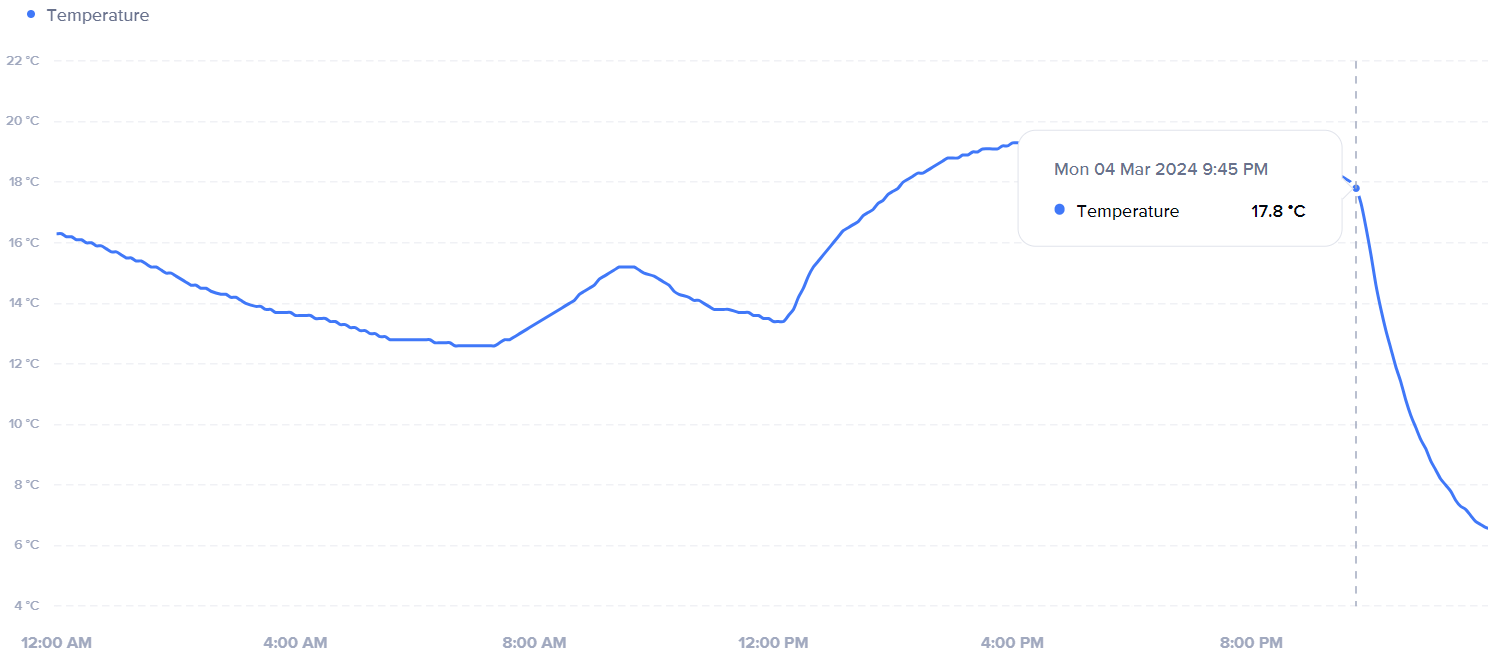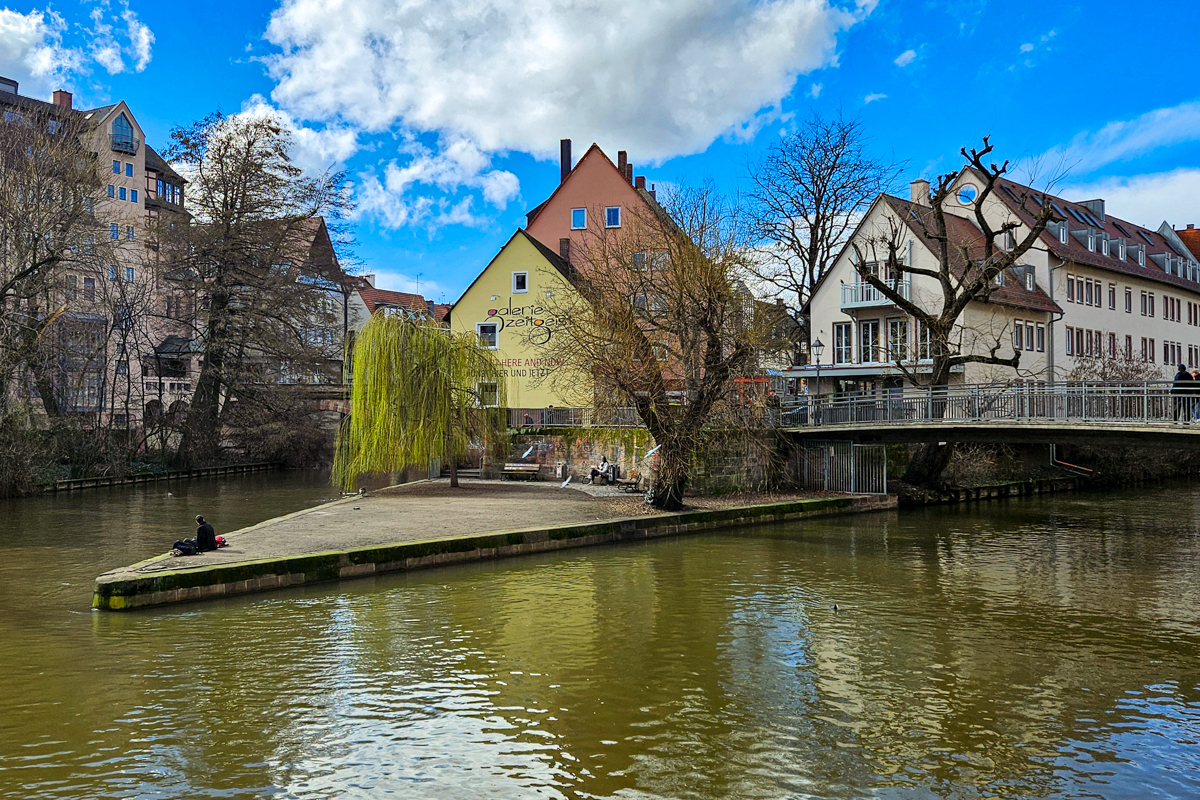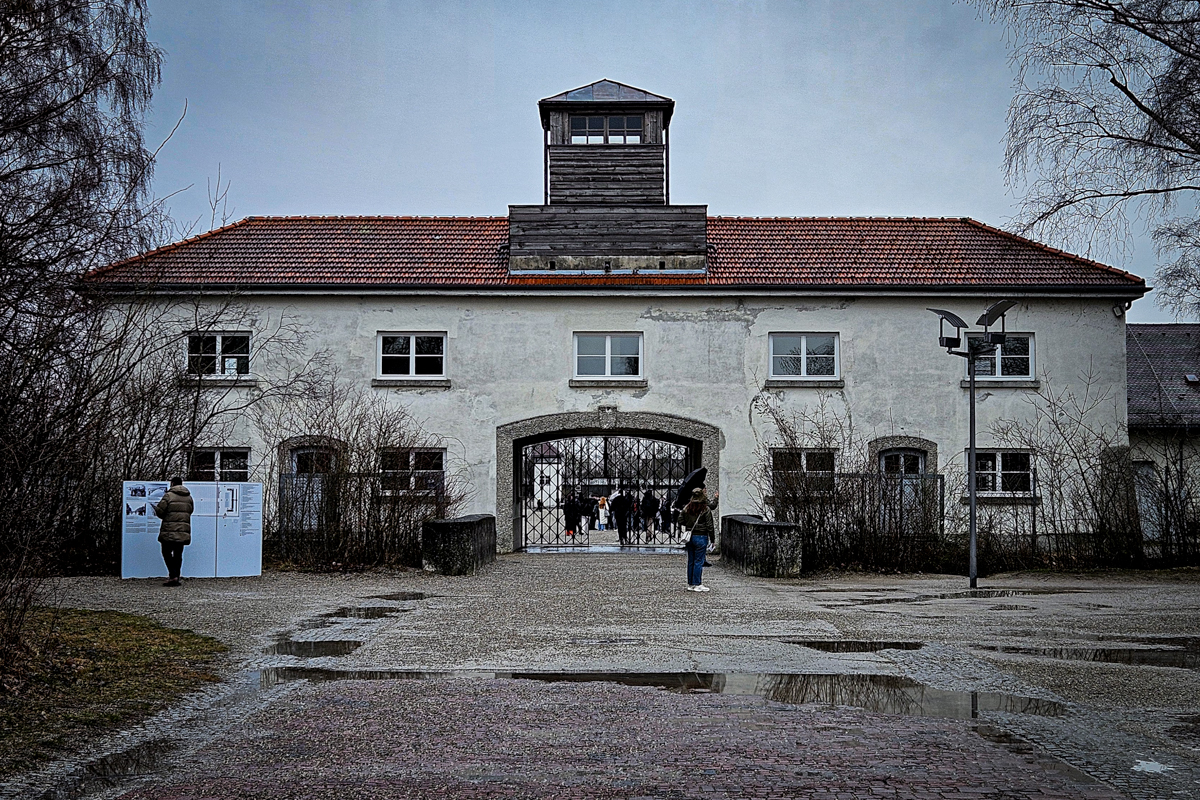We really felt the cold front that bulldozed through Chicago yesterday:

I was driving home from rehearsal at the mid-point of the curve, and really felt the difference over just 15 minutes. Right before the temperature crashed we got the first of three sets of thunderstorms, too. The other two woke me up overnight.
The Illinois State Climatologist summarized our weirdly weak winter in a post today: "Overall, the preliminary statewide average winter temperature was 1.6°C, 2.8°C above the 1991–2020 normal and, if confirmed, would be the 3rd warmest winter on record in Illinois."
Even today's 6.1°C at O'Hare puts us just over the normal March 5th high temperature of 5.9°C. The forecast for the coming week calls for more of the same, seasonably cool temperatures that still exceed normal highs.
Again, weird.
The US Supreme Court unanimously ruled that individual states have no power to remove a presidential candidate from the ballot, suggesting that only the US Congress has that power:
All the justices agreed that individual states may not bar candidates for the presidency under a constitutional provision, Section 3 of the 14th Amendment, that forbids insurrectionists from holding office. Four justices would have left it at that.
But a five-justice majority, in an unsigned opinion, went on to say that Congress must act to give Section 3 force.
In a joint concurring opinion, the court’s three liberal members — Justices Sonia Sotomayor, Elena Kagan and Ketanji Brown Jackson — expressed frustration at what they said was the majority’s needless overreach. They said it was meant to insulate the court and Mr. Trump “from future controversy.”
“The court today needed to resolve only a single question: whether an individual state may keep a presidential candidate found to have engaged in insurrection off its ballot,” they wrote. “The majority resolves much more than the case before us.”
The full opinion is here, which I plan to read tomorrow.
But of course this was the only possible outcome. And of course the Justices that the XPOTUS appointed would go farther than necessary. And of course the Court could have ruled on the XPOTUS's claims of immunity right away instead of scheduling oral arguments for April.
The corruption of the Republican justices does not surprise me anymore, but it does make me angry and sad. The Court will reverse most of their worst decisions, but like Plessy and Dred Scot, it could take decades to turn some of them around around.
The Apollo Chorus of Chicago and the Elmhurst Symphony Orchestra will celebrate Anton Bruckner's 200th birth anniversary next weekend. We perform Saturday at the Glenview Community Church and Sunday at the Elmhurst Christian Reformed Church. Here's a sample, from our rehearsal last Monday:
Note that we're only doing this and two other a cappella motets on Saturday. Our Sunday performance will have Mozart's "Linz" symphony instead. Both performances will feature Bruckner's Te Deum and Psalm 150, two works you absolutely need to hear.
(I'm not in the video because I was filming the close-ups and pans.)
This Is Spinal Tap came out 40 years ago yesterday. Enjoy:
I went through the photos I took on my trip to Germany last week and put a couple of them through Lightroom.
Getting coffee in Viktualienmarkt:
.jpg)
A very practical car for city life in post-war Germany, the 1955 BMW Isetta:

The Trödelmarktinsel, Nürnberg:

A better edit of my earlier photo of the main gate at Dachau:

And finally, I had a really great view of the New York metro area on the flight home:

Author Cal Newport examines "one reason hybrid work makes employees miserable and how to fix it:"
f you ask Americans with a desk job what they want, many say flexibility. Specifically, they want control over where that desk is located and when they work at it. Luckily for them, the American workplace is by some measures more flexible than ever before. About half of U.S. workers have “remote-capable” jobs. And Gallup data suggest that a majority of those jobs are now hybrid, meaning that employees can split time between home and the office. Despite this greater flexibility, however, surveys from last year found that Americans were more stressed and less satisfied with their job than they were during the worst of the pandemic.
What explains this paradox? One possibility is that although hybrid work loosens the rigidity of a desk job, it exacerbates an even bigger problem: what I call the “overhead tax.”
Since well before the pandemic, we’ve lived in a world of low-friction digital communication, where passing an obligation to someone else is extremely easy. I send you an email with a simple question—“Hey, can you handle the Johnson contract?”—and a few moments of my effort have suddenly been alchemized into hours of your own. Faced with a growing number of chores, you push what you can onto other people’s plate, and they respond in kind. The result is an onslaught of ad hoc assignments, whipsawing across inboxes and chat channels, that culminates in a shared state of permanent overload.
The problem with overstuffed to-do lists isn’t just the total time required to execute their contents, but the fact that each new commitment generates its own ongoing administrative demands—emails, chats, check-in calls, “quick” meetings. That’s the overhead tax. Before long, knowledge workers find themselves spending the bulk of their time talking about work instead of actually doing it.
Fortunately I don't feel that in my job, for a number of reasons but mainly that I'm building software, not doing sales. But I'm sure that Newport's essay or the book it excerpts will resonate with many of my friends.
It turns out we actually missed the record for warmest winter in recorded history. Chicago averaged 1.67°C from December 1st to February 29th, making it the 5th-warmest winter after 1881-82 (1.72°C), 1879-80 (1.78°C), 1931-32 (2.0°C) and 1877-78 (2.89°C). So it was only the warmest winter in 92 years, not the whole 153 years of data.
We did, however, have the warmest February on record, with an average temperature of 4.17°C. And it was unusually sunny: we had 75% of possible sunshine, while normal is 47%. Plus, the forecast for this weekend calls for a May-like 21°C at IDTWHQ.
Meanwhile, Lake Tahoe, Nev., could get almost 3 meters of snow this weekend as a major blizzard bumps up against the Sierra Nevada, with a 233 km/h wind gust reported at Palisades Tahoe Ski Base yesterday. That does not sound fun.
The Ecuadorean baby really screws with North American weather sometimes.